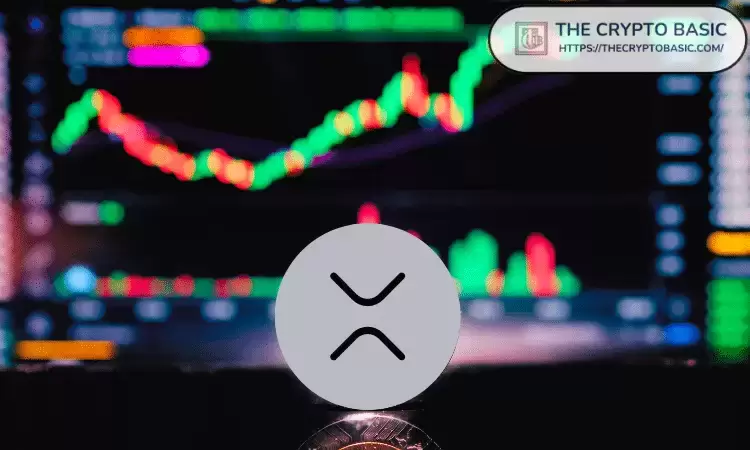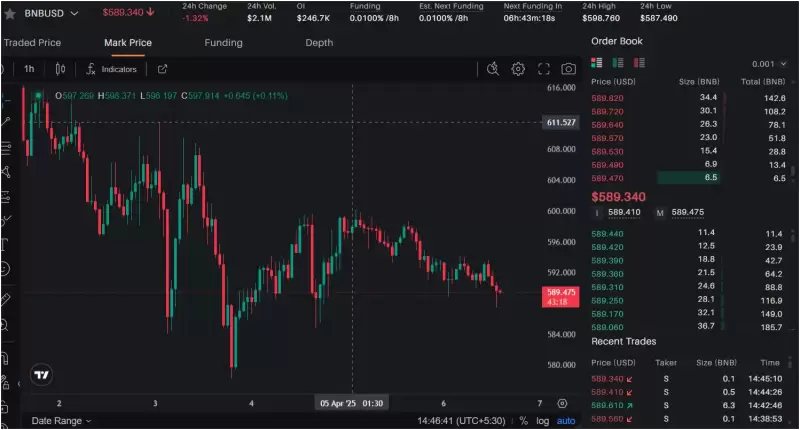 |
|
 |
|
 |
|
 |
|
 |
|
 |
|
 |
|
 |
|
 |
|
 |
|
 |
|
 |
|
 |
|
 |
|
 |
|
Cryptocurrency News Articles
OpenAI Unveils GPT-4.1, the Next Iteration in Its AI Model Lineup
Apr 15, 2025 at 05:34 pm
This new model builds upon the capabilities of GPT-4o, introducing significant upgrades in performance, affordability, and context handling

OpenAI has unveiled GPT-4.1, the latest installment in its renowned large language model (LLM) lineup, during a live broadcast on Monday. The new iteration builds upon the capabilities of GPT-4o, introducing significant upgrades in performance, affordability, and context handling, particularly relevant for developers and enterprise users.
One of the standout modifications in GPT-4.1 is the expanded context window, now supporting up to 1 million tokens. This adjustment marks a substantial increase from the 128,000-token limit in GPT-4o, enabling the new model to process much larger volumes of text, images, and even videos in a single session. As a result, GPT-4.1 can deliver more accurate and detailed responses for complex tasks involving large datasets or intricate instructions.
According to OpenAI, GPT-4.1 also improves reliability, especially in managing both long and short-form content. The model has been fine-tuned to ignore irrelevant data more effectively, which enhances its usefulness across various real-world applications—from coding and instruction-following to data analysis.
In addition to the main GPT-4.1 release, OpenAI introduced two lightweight variants designed for cost-conscious developers:
* GPT-4.1 Mini – An affordable entry-level model offering core features of the flagship version, ideal for smaller-scale development needs.
* GPT-4.1 Nano – The smallest and fastest variant, built for high-efficiency tasks where speed and cost savings are key.
Notably, GPT-4.1 is priced 26% lower than its predecessor GPT-4o, making it more accessible for startups, enterprises, and independent developers. This pricing shift comes as OpenAI faces mounting competition from rival AI models like DeepSeek, which has recently set a new benchmark for efficiency in processing the entire CC3600 data set.
With the launch of GPT-4.1, OpenAI will be phasing out GPT-4 by April 30, 2025, and deprecating the GPT-4.5 preview in its API by July 14, 2025. The company claims that GPT-4.1 delivers superior performance with lower latency, warranting the transition.
Looking ahead, OpenAI has encountered delays in releasing GPT-5, originally anticipated by May 2025. CEO Sam Altman attributed the setback to challenges in seamlessly integrating the new model with existing systems. However, OpenAI is preparing for the release of its next reasoning engines—o3 and o4 mini—which are expected to follow GPT-4.1 shortly.
Disclaimer:info@kdj.com
The information provided is not trading advice. kdj.com does not assume any responsibility for any investments made based on the information provided in this article. Cryptocurrencies are highly volatile and it is highly recommended that you invest with caution after thorough research!
If you believe that the content used on this website infringes your copyright, please contact us immediately (info@kdj.com) and we will delete it promptly.



























































